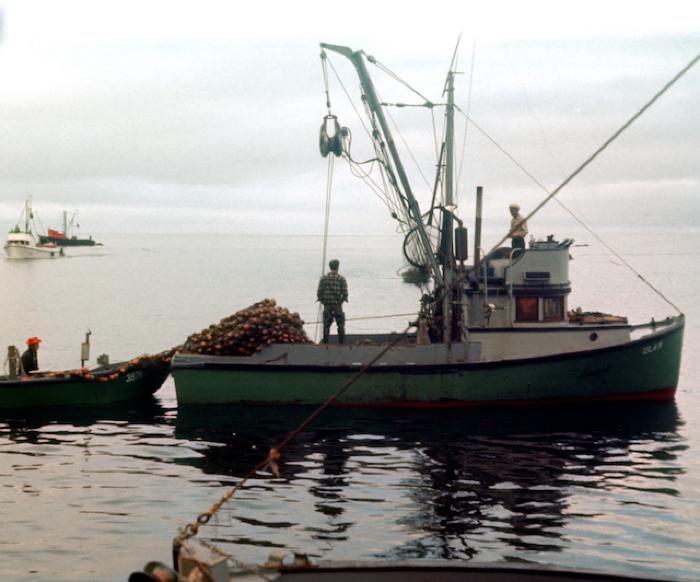That One — Taugna

Personal pronouns are the short words like ‘you’ or ‘he’ that replace a name in a sentence. These useful words stand-in for people and help us to speak and write efficiently. Instead of having to use a person’s name each time you refer to them, you can use a personal pronoun. Personal pronouns can also hold all sorts of information depending on the language you are speaking. In some languages, personal pronouns identify gender, like he or she in English. In others, like tu or vous in French, they indicate the degree of familiarity between the people conversing.
Alutiiq personal pronouns have two interesting uses. First, they are spatially based. They can indicate the distance between a speaker and an object. For example, speakers use ikna to mean a person way out there, while qamna refers to someone in the next room. If you are standing on a mountain top and want to refer someone below you, camna—person down there is useful.
Second, Alutiiq has no gendered personal pronouns. You can’t say he or she in Alutiiq. In English, you could use the personal pronoun “he” to talk about a man whose boat is entering Chiniak Bay. “He is coming into the bay,” you might say. In Alutiiq, this isn’t possible. You could use the man’s name or simply say, “The man is entering the bay”. But if you want to use a personal pronoun you could say taugna—that one. “That one is coming into the bay.”
Gender neutrality is common in Native languages. That doesn’t mean Native societies don’t recognize gender categories. In the Alutiiq world, there are at least three gender categories—nukallpiaq (man), arnaq (woman), and arnauciq (a two-spirit person or cross-gendered person).
